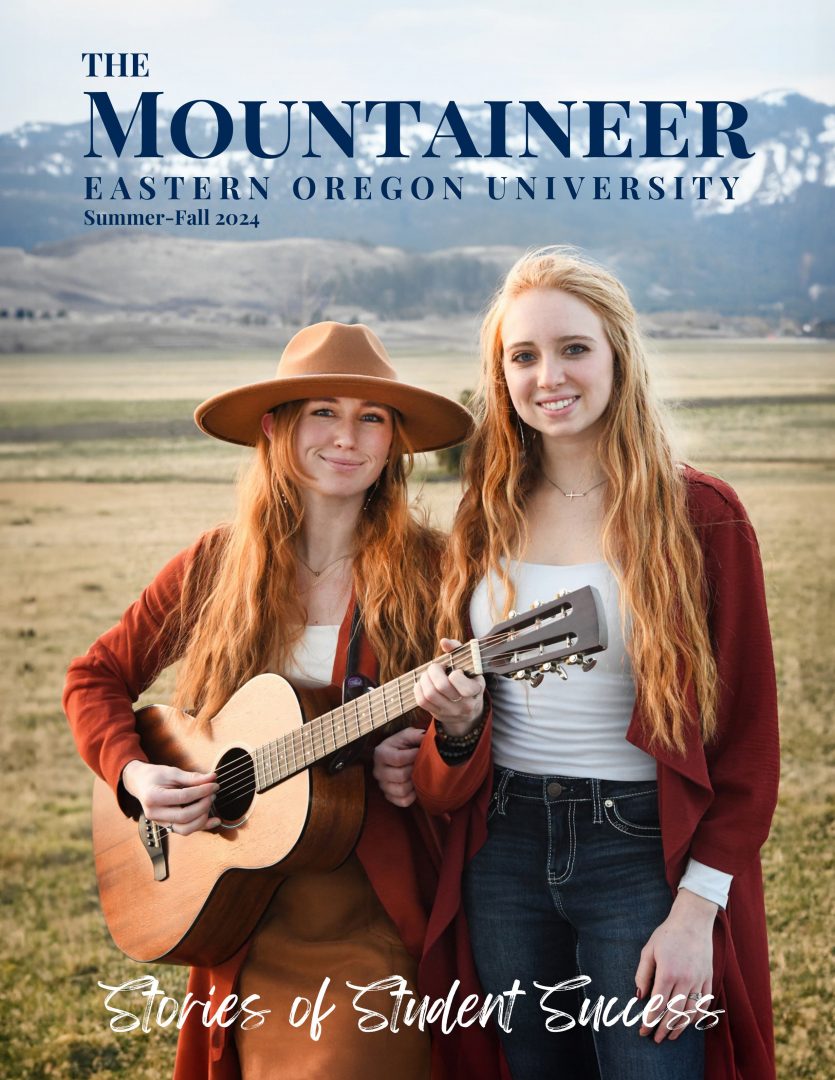Not your average table wine
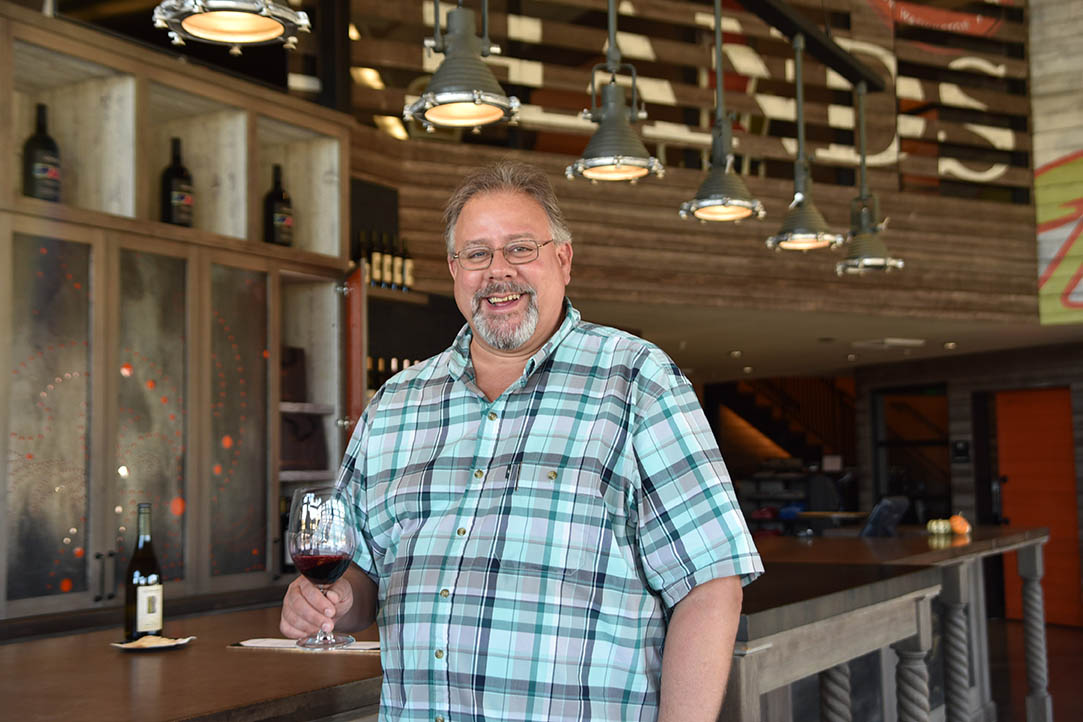
The sound of several tons of grapes pouring from a truck onto a crush pad is remarkably similar to that of red wine splashing into a glass.
Both sounds are familiar to Keith Kenison, ’90, and his employees at the 14 Hands winery in Prosser, Washington, where they process about 500 tons of grapes every day during harvest. Kenison is the head winemaker at the facility, which makes all of the reds for Washington’s second largest winery.
Since he started shoveling grape skins out of the bottom of fermenting tanks in 1992, he’s had hands-on experience at every level of Ste. Michelle Wine Estates.
“I don’t have a degree in viticulture, but I’ve spent many years at Ste. Michelle Wine Estates University,” he joked.
After five years as a cellar worker, he became a quality assurance technician, and then an enologist in the wine lab. He crafted whites for Columbia Crest for a few years, then 14 Hands selected him when it opened in 2005.
Now, he oversees almost two dozen employees developing everything from reserves and one-of-a-kind seasonal wines to the No. 1 selling red wine in Portland and Seattle — Hot to Trot Red Blend.
Through it all, he’s stayed connected to his rural roots. Born and raised in Heppner, Oregon, Kenison studied psychology at EOSC and earned enough scholarships to graduate debt-free.
“I was the first person in my family to get a bachelor’s degree,” he said. “I wondered if it was really worth it sometimes, but I couldn’t have gotten this job without one.”
His practical, customer-first approach means that every decision, from when to pick the fruit to which barrels to bottle together, is made based on taste.
“Numbers and chemistry support our decision-making, but they aren’t driving it,” Kenison said.
In the wine analysis lab, technicians watch the sugar level drop, indicating yeast is growing. They also look for decreasing malic acid, the compound that gives Granny Smith Apples their tartness, as it becomes lactic acid.
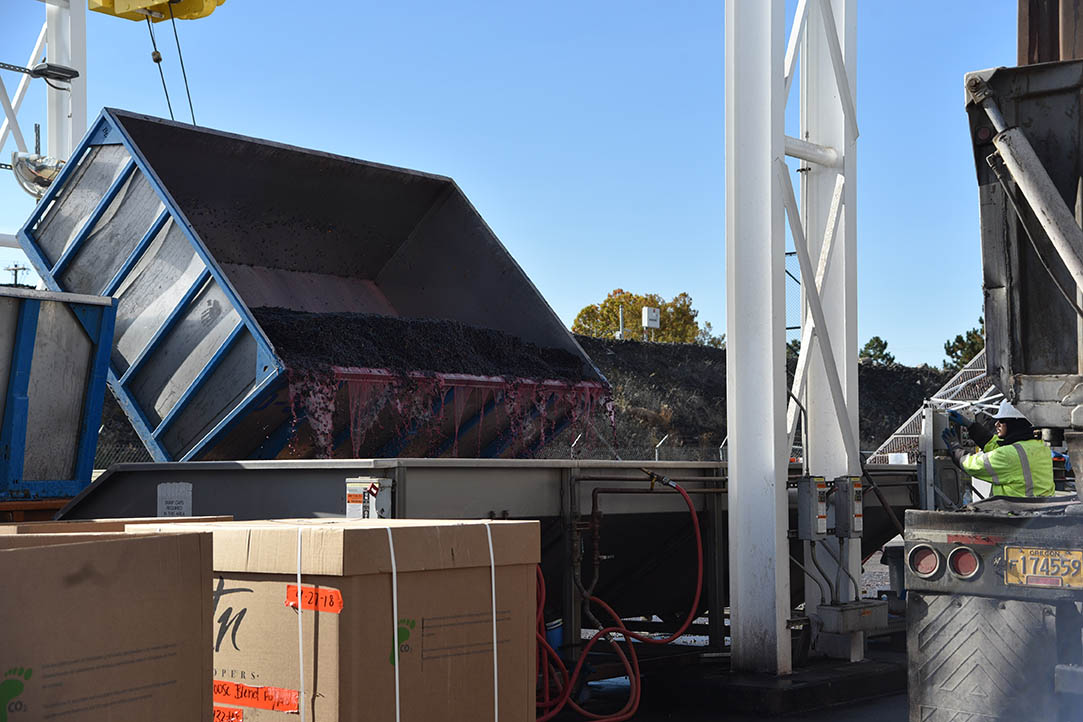
Grapes arrive at the winery. 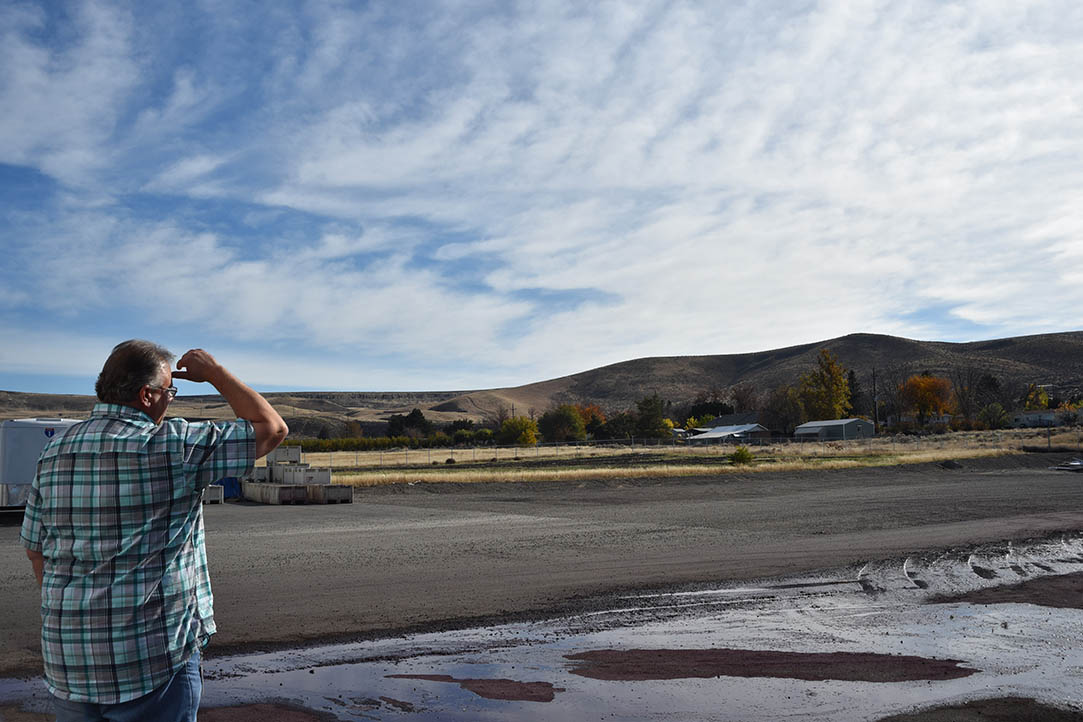
Kenison gazes at the Horse Heaven Hills, where many 14 Hands grapes are grown. 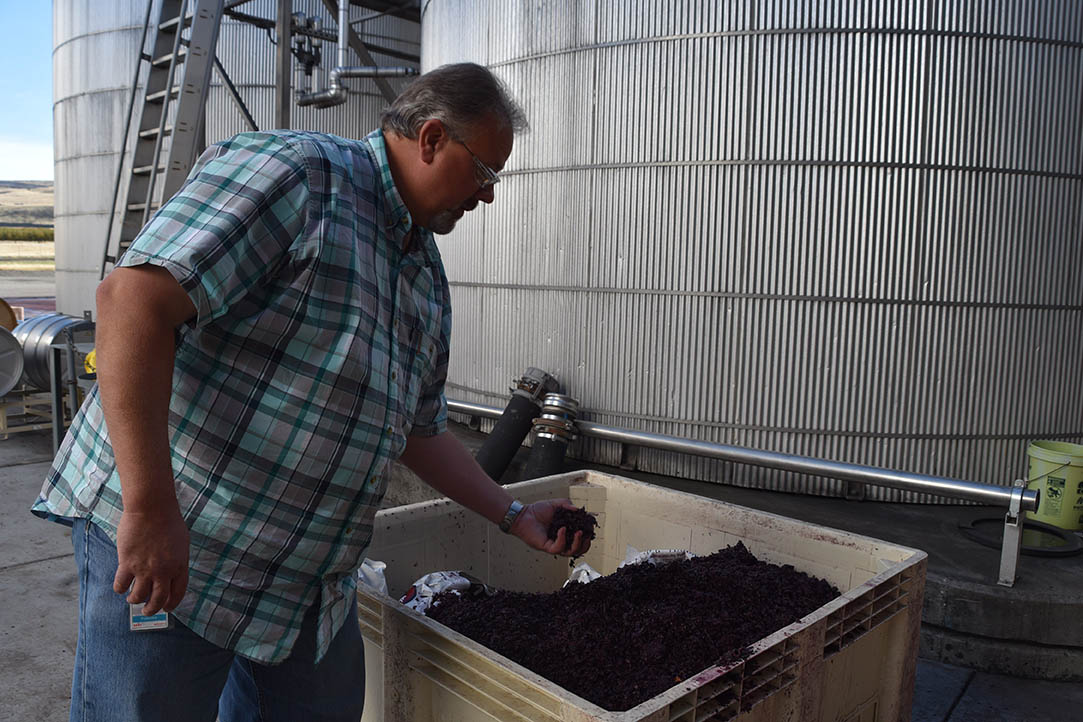
Kenison examines spent grape skins and stems bound for animal feed.
14 Hands has 35 wines on the market today and produces about two million cases a year — that’s about 144 million glasses of wine. Quite the expansion from its first run of three varieties and 85,000 cases.
“I didn’t feel like we could maintain quality with that growth, but the fruit source was developing with and ahead of us,” Kenison said.
The winery is located within sight of the Horse Heaven Hills, in the official American Viticultural Area of the Yakima Valley. With 300 days of sunshine and well-drained soil, the conditions are ideal for vineyards.
“Eastern Washington is probably the perfect place to grow wine grapes,” he said. “The hot, dry days and cool nights make for a good balance of sugar and acid.”
All of the vineyards are within an hour-and-a-half of the winery, so Kenison can get the fruit into production quickly when it’s at its peak.
The nearby hills were once home to wild mustangs, whose power and strength inspired the winery’s name. Kenison said his favorite wines to make, the reserves, are made entirely of grapes from the Horse Heaven Hills and use only traditional winemaking techniques.
“It’s all barrels instead of steel tanks, with gravity-flow transfers instead of pumping,” he said. “They’re only available at the tasting room here, online and to club members.”
But he’s quick to reiterate that exclusivity does not necessarily translate to quality. He calls 14 Hands “wine for regular people.”
“Wine shouldn’t be mysterious or intimidating, wine is something to enjoy,” Kenison said. “You should drink what you like, if that’s a red with your fish or a white with your Wednesday meatloaf, that’s fine.”
Nonetheless, 14 Hands takes center stage each May at the Kentucky Derby as the event’s official wine sponsor. Kenison has attended the 14 Hands Parade of Horses, and even met the president of Churchill Downs on his three trips to Kentucky. Although its primary market is still the Northwest, the winery has developed a pocket of loyal buyers in Louisville.
Kenison’s winemaker duties extend to traveling for festivals, budgeting for equipment, and even editing the text on wine labels. In the midst of big decisions, he still prioritizes casual wine drinkers and a hands-on approach.
“There are times when I’m standing in the supermarket offering people a taste,” he said. “And there are times I get to participate in our grape-stomping contest. I would’ve won, too, but a truck of fruit came in and I had to get back to work.”
